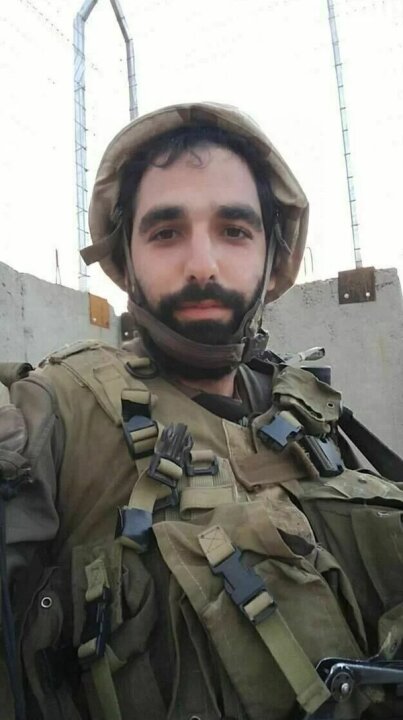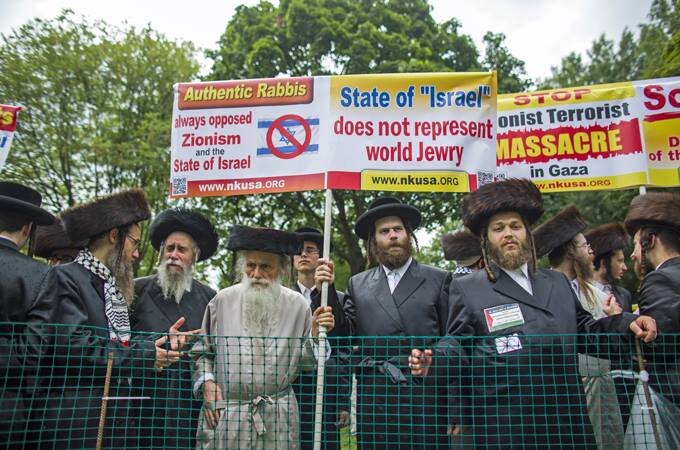A former Israeli soldier calls for international intervention to stop settler violence
Givati, 32, is now advocacy director for Breaking the Silence, a group made up of Israeli military veterans who are against their country's occupation of Palestinian territories. They collect testimony from former soldiers to educate the public on how the occupation is enforced.
Below are some highlights from NPR's interview with former Israeli soldier Ori Givati. Answers have been edited and condensed for clarity and length.
On the relationship between settlers and the Israeli military
I joined to be a combat soldier because I wanted to protect my country, my friends and my family. When I see the military that I joined used as an employee of the settler movement, this process is terrifying for me. It's already devastating for the security of Israel itself.
You don't have the order to stop violent settlers. What you do have orders for is to protect the Jewish community. We don't have orders as soldiers to protect everyone in the area. We have hundreds of testifiers. None of them said that they received an order to detain a settler attacking a Palestinian, even though it's the most simple order.
On how Israeli soldiers show Palestinians "who's the boss"
Occupying millions of people for decades means you control their everyday life. The first command I received as a soldier in the West Bank was to make all of the Palestinians feel like they cannot lift their heads up. We have to make sure that they know who's the boss. How do we do that? We make sure that all of the Palestinians cannot pass a day without understanding who is controlling them.
For example, one of the missions is called a mock arrest. A mock arrest is when a group of soldiers invades a Palestinian home in the middle of the night, arrests one of the family members. It can be a few minutes, sometimes it's a few hours. They choose, with intelligence, the home of a family that is not violent; they arrest the father, usually, and then bring them back because they're just training for a future mission. Imagine the impact of this mission to the kids, to the wife, to the family.
On settler violence against Palestinians in the Israeli-occupied West Bank
The violence is not new. It didn't start during this war. It started in 1967 from the first day of the occupation. But today, what we're seeing in the West Bank is the peak of this violence. To understand the violence we have to understand what's behind it. Violent settlers understand that by attacking a Palestinian community in a rural village, if they do it with enough persistence and with enough interruption they can make them move away.
Violent people exist everywhere, criminals exist everywhere. But what we are seeing today is a phenomenon of settlers attacking Palestinians while the military, which is supposed to protect the Palestinians, is actually protecting the attackers. Palestinians in these communities are left with zero protection of their families, of their lands, of their culture, and are basically left with no options, leaving sometimes decades-old communities.
Below are some highlights from NPR's interview with former Israeli soldier Ori Givati. Answers have been edited and condensed for clarity and length.
On the relationship between settlers and the Israeli military
I joined to be a combat soldier because I wanted to protect my country, my friends and my family. When I see the military that I joined used as an employee of the settler movement, this process is terrifying for me. It's already devastating for the security of Israel itself.
You don't have the order to stop violent settlers. What you do have orders for is to protect the Jewish community. We don't have orders as soldiers to protect everyone in the area. We have hundreds of testifiers. None of them said that they received an order to detain a settler attacking a Palestinian, even though it's the most simple order.
On how Israeli soldiers show Palestinians "who's the boss"
Occupying millions of people for decades means you control their everyday life. The first command I received as a soldier in the West Bank was to make all of the Palestinians feel like they cannot lift their heads up. We have to make sure that they know who's the boss. How do we do that? We make sure that all of the Palestinians cannot pass a day without understanding who is controlling them.
For example, one of the missions is called a mock arrest. A mock arrest is when a group of soldiers invades a Palestinian home in the middle of the night, arrests one of the family members. It can be a few minutes, sometimes it's a few hours. They choose, with intelligence, the home of a family that is not violent; they arrest the father, usually, and then bring them back because they're just training for a future mission. Imagine the impact of this mission to the kids, to the wife, to the family.
On settler violence against Palestinians in the Israeli-occupied West Bank
The violence is not new. It didn't start during this war. It started in 1967 from the first day of the occupation. But today, what we're seeing in the West Bank is the peak of this violence. To understand the violence we have to understand what's behind it. Violent settlers understand that by attacking a Palestinian community in a rural village, if they do it with enough persistence and with enough interruption they can make them move away.
Violent people exist everywhere, criminals exist everywhere. But what we are seeing today is a phenomenon of settlers attacking Palestinians while the military, which is supposed to protect the Palestinians, is actually protecting the attackers. Palestinians in these communities are left with zero protection of their families, of their lands, of their culture, and are basically left with no options, leaving sometimes decades-old communities.






